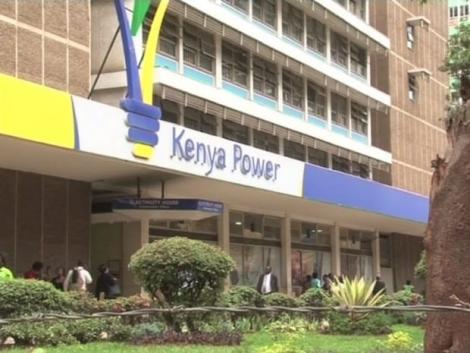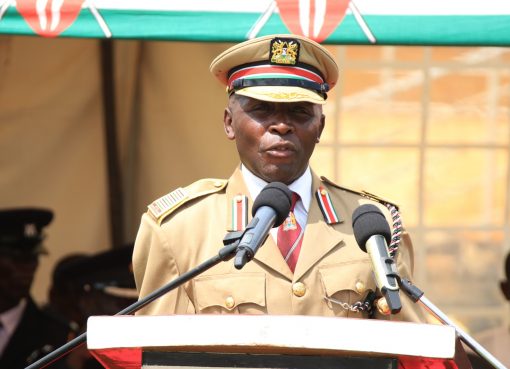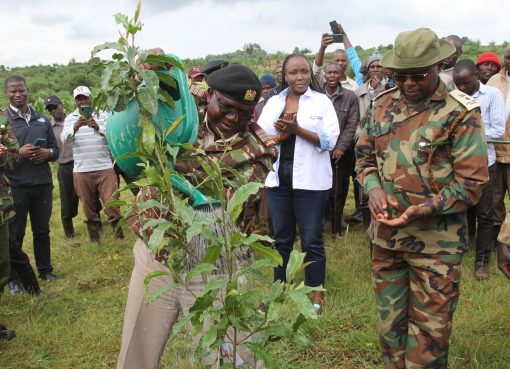Bewildered. Traumatized. Terrified.
These are the only words that come close to describing the turmoil facing in Ezekiel Mwaleghu, a 19-year old form-one student at Bughuta Secondary school in Voi sub-county.
He spends his days holed up in their home in Bughuta village. Whenever he goes outside for some fresh air and little sun, he is always on the lookout for visiting neighbors. When one approaches, he dashes to hide in his room that has become his new prison. He only leaves his home to attend meetings for Buguta Disabled and Handicap Group where he was recently enrolled as a member.
“I just need the stares, the gossip and the laughter to stop,” Mwaleghu says in a subdued voice.
It is a sensitive topic. It is hard to get him to talk but when he reluctantly opens up, his halting voice paints a grim portrait of a soul tormented by anguish, uncertainty and great fear.
Since he was born, Mwaleghu grew up knowing he was a normal boy like any other. He grew up to become a healthy teenager and engaged in all activities his age mates did. He looked forward to the brightest of futures until when he was approaching his eighteenth birthday.
Around October 2018 while in class seven, he noticed disturbing changes his body was undergoing. The most prominent was the transition of his flat boyish breast into becoming fuller; more rounded; more feminine. Even the nipples were more elongated.
He told a few trusted friends about the changes. They dismissed it was normal. All he had to do was to squeeze the nipples extremely hard with two pieces of wood. The wood therapy would stop the breast from growing. Mwaleghu took their advice. The breasts grew bigger.
As a candidate in class eight last year, his breasts had fully developed. He took to wearing baggy shirts and jackets to conceal their size but it was too late. Other children in school were whispering; the villagers were staring harder than usual and heads started turning whenever he went. Bewildered as he was, he did not know that more anatomical changes were on the way.
Whenever he went for short calls, some little urine would leak from a small secondary female organ situated under his male organ. That discovery blew his world apart. Frightened, alone and lost on what to make of these changes, Mwaleghu had to tell someone.
“I confided to the principal about my problem. He told me he would find a sponsor to assist me get proper medical help. He has not been successful,” admits the troubled teenager.
However, it was not until he disclosed the body changes to his father that he discovered the shattering news. His father told him of a corrective surgery done to him at infancy by doctors at Kijabe Mission Hospital, an operation he had no recollection of.
Mr. Nyange Mwachia, the father, is equally bewildered but puts up a strong face for the sake of his frightened child.
“He underwent a corrective operation while he was a baby to seal off his female organ. We are wondering why this is happening now,” he said.
He explains that his son, born in 2001, had both male and female genitals. The doctors at Moi County Referral Hospital in Voi referred the case to Coast General Hospital in Mombasa. Several tests and X-rays were done on the infant from facilities including Agha Khan and Pandya. All the test, the father says, showed the baby was a boy in all senses. All that was needed was a corrective surgery to seal the female organ.
“I was directed to go to Port Reitz because that is where I could meet doctors from Kijabe Mission Hospital who would assist me,” he explains.
The visiting doctors studied the tests and recommended the operation for the infant at Kijabe Mission Hospital. The corrective procedure was successful. The parents also had Mwaleghu circumcised at the same time.
“I went to Port Reitz Hospital a few more times for post-operation checkups and everything was okay. I knew my child was now until now,” he said.
That such conditions of intersex in Mwaleghu tradition-observing rural village are virtually unheard off, the young Mwaleghu and his family have been plunged in the middle of unfolding nightmare. The growing stigma over his condition, the whispered conversations whenever he passes, the surreptitious finger pointing, the hooded looks and the unrelenting teasing have become so common that he no longer leaves home.
Ms. Flora Ngongolo, the mother, says her greatest anxiety is how her son can cope with the overwhelming scrutiny and curiosity generated by his condition.
“He has taken to hiding in his room all day to avoid the public. It is very unhealthy for him for he needs to go out. What will now happen when schools open?” she posed.
In a testimony to how unisex individuals are misunderstood, Mwaleghu was recently enrolled as a member of Bughuta Disabled Group in hope that he might get swift assistance if his sexual variation is classified as a disability.
Ms. Margaret Kimeu, an official with the disabled group, said they were puzzled on why the teenager had joined them yet he appeared normal in all ways. It was only after probing on his type of disability that they realized he was a unisex.
“He is not like us because he has limbs and parts intact. His condition is not permanent and can be rectified,” she said.
Earlier on, the group had ignorantly shared his photo with exposed breasts on several online platforms as a way of raising awareness about his condition and hoping to attract support. Ms. Kimeu says they did it in good faith and did not know such actions could enhance the stigma towards the teen.
The family is reaching out to well-wishers to assist in helping his son undergo another procedure. He adds that there are a lot of misinformation about how to make him ‘normal’.
“I am being told there are injections that can make him a boy again. Others are telling me that he can only get help in Indian. We are lost on what to do,” he said.
According to Kenya’s 2019 Population and Housing Census, the country registered 1,524 intersex individuals.
By Wagema Mwangi
Saturday, May 10, 2025




